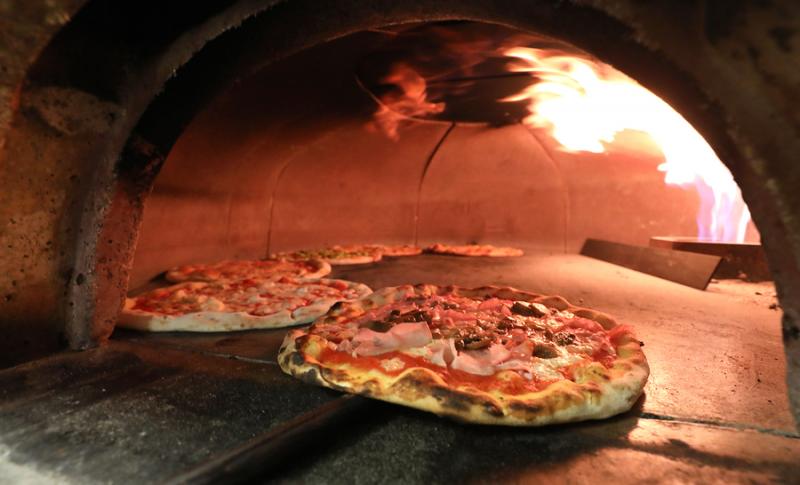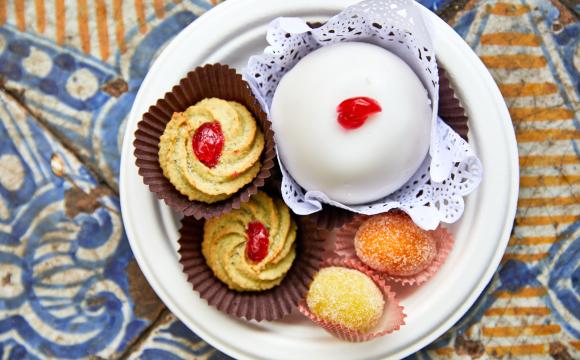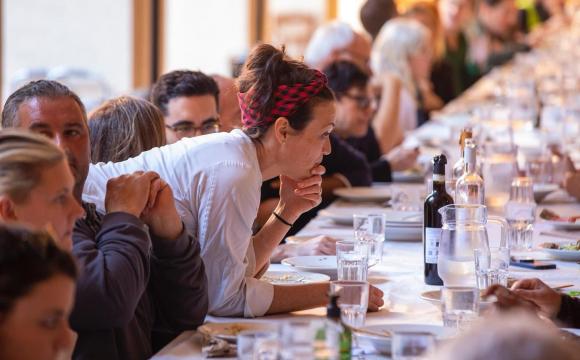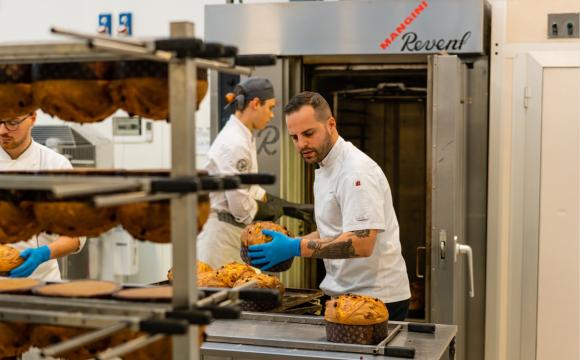Idioms are sayings or expressions that often can’t be translated literally. They’re widely used in spoken Italian so a great way to express yourself and make you sound more like a local. In this language lesson, we’re going to look at some idiomatic expressions related to food. As you know, Italy is famous for its food. And quite rightly so! There are lots of fun and colourful food sayings we’ll look at today. Hopefully you can use some of them when speaking Italian in future.
There are some food idioms similar to ones we have in English, for example ‘Essere dolce come miele’ means to be as sweet as honey. ‘Essere la ciliegina sulla torta’ means to be the cherry on the cake, or better still, to be the icing on the cake’. ‘Piangere sul latte versato’ is the same as crying over spilt milk in English.
Now we’re going to look at some that can’t be translated directly. We just have to learn the meaning of these:
Che pizza!
Literal translation: What a pizza!
Real meaning: How boring!
Rendere pan per focaccia
Literal translation: To give back bread for focaccia
Real meaning: An eye for an eye i.e. payback for something
Note: Focaccia is a type of Italian bread, often with rosemary
Andare liscio come l’olio
Literal translation: To go smooth like oil
Real meaning: To go very well and smoothly, without any problems
Far venire il latte alle ginocchia
Literal translation: To make milk come out your knees
Real meaning: To be really boring or irritating
Essere buono come il pane
Literal translation: To be as good as bread
Real meaning: To be a really good person. In English, we could say ‘to be as good as gold’
Non c’è trippa per gatti
Literal translation: There’s no tripe for cats
Real meaning: There is no chance of you getting what you want. You could also translate as ‘no way!’ or ‘not a hope in hell!’.
C’entra come i cavoli a merenda
Literal translation: It fits in like cabbage at snack time
Real meaning: It has nothing to do with it, it doesn’t fit in, or it is inappropriate
Ridi, ridi, la mamma ha fatto i gnocchi
Literal translation: Laugh, laugh, your mum has made gnocchi
Real meaning: Keep on laughing! You would say this to someone who is laughing but in your opinion there’s nothing to be laughing about
Essere pieno come un uovo
Literal translation: To be as full as an egg
Real meaning: To be really full and stuffed so that you can’t eat anything else
Avere il proscuitto sugli occhi
Literal translation: To have ham on your eyes
Real meaning: To have your head in the sand i.e. to be oblivious and not see something that is clear to everyone else
Tutto fa brodo
Literal transation: Everything makes broth
Real meaning: Every little helps
Non puoi avere la botte piena e moglie ubriaca
Literal transation: You can’t have a full barrel and a drunk wife
Real meaning: You can’t have your cake and eat it, or you can’t have the best of both worlds
I’d like to leave you with one final food idiom - Finire a tarallucci e vino. Taralli or tarallucci are little Italian crackers or biscuits from the south of Italy, they can be sweet or savoury. At the end of a meal, they would traditionally be served with some wine. Literally this expression means to finish with tarallucci and wine. However, what it really means is that a disagreement has ended on a positive note. In English we would say: all’s well that ends well.












